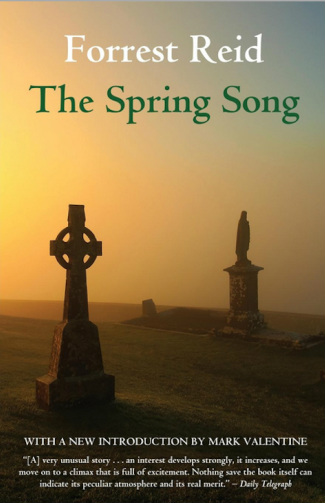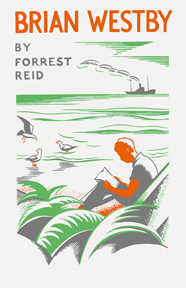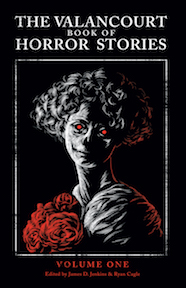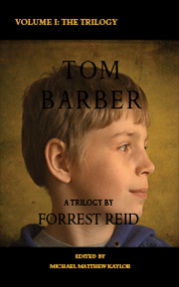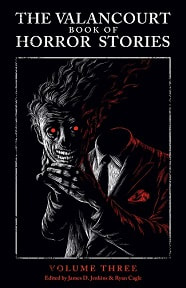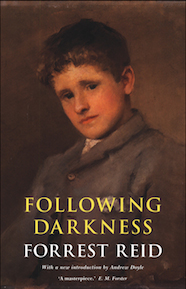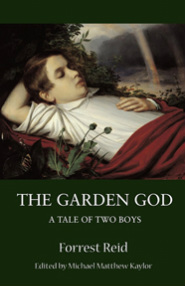|
BOOK DETAILS
Trade paper ISBN-13: 978-1939140227 List Price: $16.99 U.S. Pages: 196 Published: 2013 |
The Spring Song (1916)
Forrest Reid With a new introduction by Mark Valentine Book Description
Thirteen-year-old Grif Weston and his siblings, Barbara, Ann, Jim, Edward, and Edward's friend Palmer Dorset, travel to their grandfather's home in rural Ireland, where they hope to pass an eventful summer. Unexpected dangers and adventures lurk, as the children must solve the kidnapping of their beloved dog Pouncer and thwart a burglary attempt on Grandpapa's house. Yet there is another danger, far more sinister, involving Billy Tremaine, a local boy who died at age fourteen in a tragedy no one wants to talk about. When Grif hears a mysterious figure singing an old tune called "The Spring Song," old Mr. Bradley tells him that it's Billy's ghost, trying to lure Grif into joining him in the world of the dead; shortly afterwards Grif falls ill with an inexplicable sickness. But Palmer Dorset, an avid reader of Sherlock Holmes tales, is determined to solve these mysteries, and he'll risk every danger to find the truth behind Mr. Bradley's ghastly stories and Grif's unexplainable illness. . . . Forrest Reid (1875-1947) is unequaled among English-language writers in his novels of boyhood and adolescence. In The Spring Song (1916), he weaves a classic boys' adventure tale with a chilling ghost story in the vein of Henry James’sThe Turn of the Screw. This edition, the first since the novel's original publication, is newly typeset from the original edition and features a new introduction by Mark Valentine. |
reviews
“For this reissue of The Spring Song … and for other titles, we owe a debt of gratitude to the publisher Valancourt, whose aim is to resurrect some neglected works of literature, especially those incorporating a supernatural strand, and make them available to a new readership.” – Patricia Craig, Times Literary Supplement
“[A] very unusual story [...] an interest develops strongly, it increases, and we move on to a climax that is full of excitement. Nothing save the book itself can indicate its peculiar atmosphere and its real merit.” – Daily Telegraph
“A very exquisite book, written with rare charm and great art.” – Manchester Guardian
“A book of distinction and charm.” – New York Times
“There are few contemporary stories of childhood reaching the artistic height of The Spring Song.” – Springfield Republican
“[A] very unusual story [...] an interest develops strongly, it increases, and we move on to a climax that is full of excitement. Nothing save the book itself can indicate its peculiar atmosphere and its real merit.” – Daily Telegraph
“A very exquisite book, written with rare charm and great art.” – Manchester Guardian
“A book of distinction and charm.” – New York Times
“There are few contemporary stories of childhood reaching the artistic height of The Spring Song.” – Springfield Republican
ALSO AVAILABLE THROUGH ONLINE RETAILERS
|
EBOOK
Kindle US |
MORE TITLES BY THIS AUTHOR
SEE THE COMPLETE LIST OF TITLES HERE
AUTHOR BIOGRAPHY
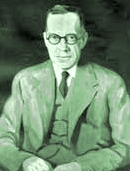
Forrest Reid was born in Belfast in 1875, the youngest of a large family. His father died when he was still a young child, and much of his upbringing therefore fell to his rather conventional mother and his elder sisters. As a youth he felt ill at ease with what seemed the narrow piety of his family’s Presbyterian faith, and their solid middle-class values. After a local schooling, he was apprenticed at age eighteen to the tea trade. The work was not demanding, and Reid coped with the tedium of commercial life by retreating into a dream world of wonder and beauty, inspired by his reading of the Greek classics.
Reid later disowned his first two novels, The Kingdom of Twilight (1904) and The Garden God (1905). The latter novel risked controversy with its portrayal of romantic friendship between two boys; Reid dedicated it to his literary idol Henry James, who was outraged and never spoke to Reid again. After the death of Reid’s mother, a small legacy enabled him to devote himself more fully to his writing, and in the 1910s he published a string of excellent, though not commercially successful novels, including The Bracknels (1911), Following Darkness (1912) (said to have been an influence on Joyce’s A Portrait of the Artist as a Young Man), At the Door of the Gate (1915), The Spring Song (1916), and Pirates of the Spring (1919).
The best of Reid’s works, though, came later in life, beginning with Uncle Stephen (1931), which, with The Retreat (1936) and Young Tom (1944), made up the Tom Barber trilogy, regarded by many as his masterpiece; the final book in the trilogy won the James Tait Black Memorial Prize as the best novel published in 1944. Reid’s other mature work includes Brian Westby (1934), inspired by Reid’s friendship with nineteen-year-old Stephen Gilbert, who also went on to become a novelist, and Peter Waring (1937) and Denis Bracknel (1947), rewritten versions of Following Darkness and The Bracknels, respectively. Reid died in 1947, critically well-regarded, but never having achieved the widespread popular recognition he deserved. When Valancourt Books reprinted The Garden God in 2007, all of Reid’s books were out of print. Valancourt is now in the process of restoring Reid’s best works to print.
Reid later disowned his first two novels, The Kingdom of Twilight (1904) and The Garden God (1905). The latter novel risked controversy with its portrayal of romantic friendship between two boys; Reid dedicated it to his literary idol Henry James, who was outraged and never spoke to Reid again. After the death of Reid’s mother, a small legacy enabled him to devote himself more fully to his writing, and in the 1910s he published a string of excellent, though not commercially successful novels, including The Bracknels (1911), Following Darkness (1912) (said to have been an influence on Joyce’s A Portrait of the Artist as a Young Man), At the Door of the Gate (1915), The Spring Song (1916), and Pirates of the Spring (1919).
The best of Reid’s works, though, came later in life, beginning with Uncle Stephen (1931), which, with The Retreat (1936) and Young Tom (1944), made up the Tom Barber trilogy, regarded by many as his masterpiece; the final book in the trilogy won the James Tait Black Memorial Prize as the best novel published in 1944. Reid’s other mature work includes Brian Westby (1934), inspired by Reid’s friendship with nineteen-year-old Stephen Gilbert, who also went on to become a novelist, and Peter Waring (1937) and Denis Bracknel (1947), rewritten versions of Following Darkness and The Bracknels, respectively. Reid died in 1947, critically well-regarded, but never having achieved the widespread popular recognition he deserved. When Valancourt Books reprinted The Garden God in 2007, all of Reid’s books were out of print. Valancourt is now in the process of restoring Reid’s best works to print.

